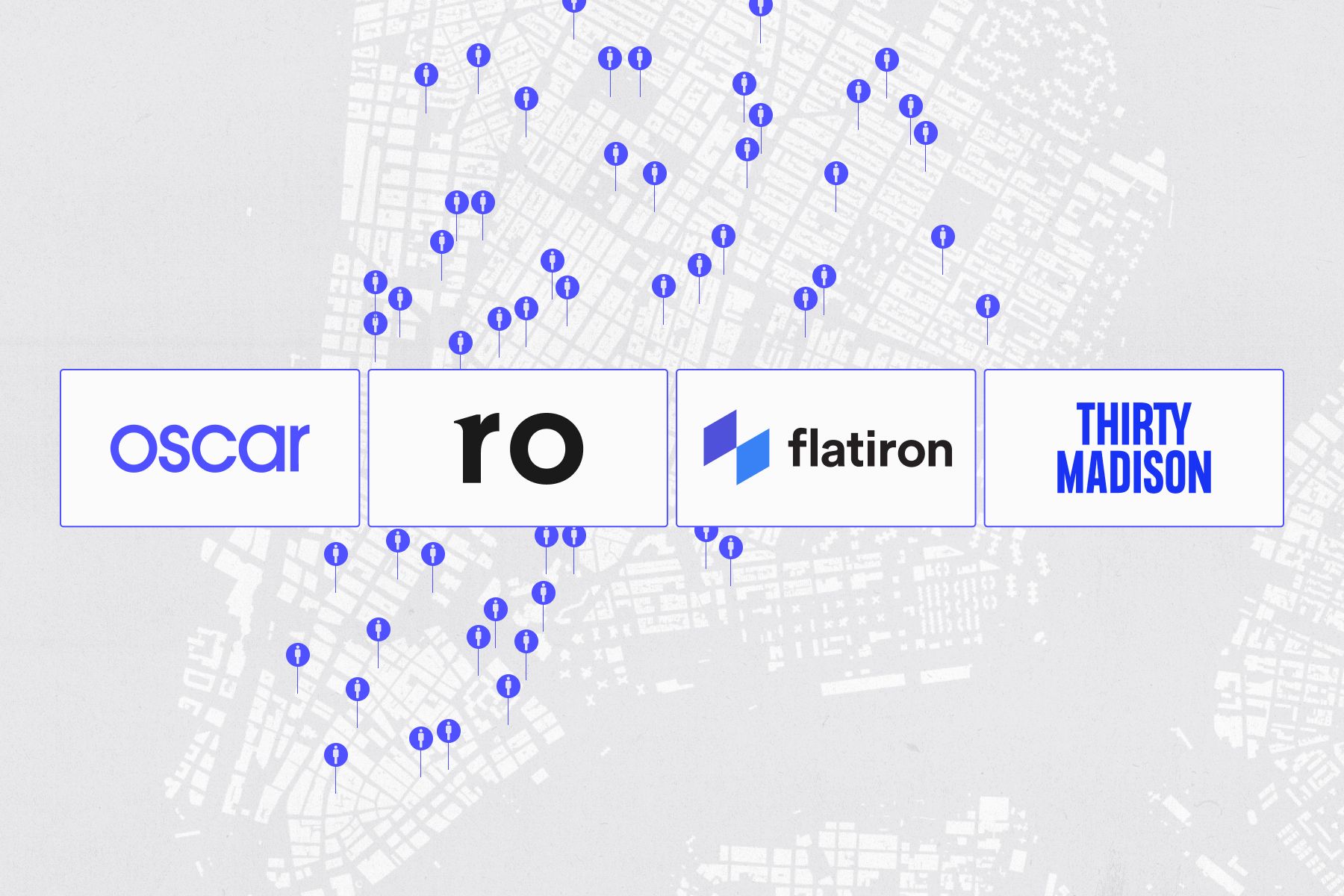Giant Steps: In 2024, Turn Headwinds into Opportunity

The founders I work with know that I think about John Coltrane a lot. Lately I’ve been thinking about how he transformed jazz music with a harmonic progression known as “Coltrane changes.”
Popularized on his 1960 album Giant Steps, Coltrane changes are characterized by rapid and frequent modulations between key centers. Breaking the mold of traditional jazz improvisation, the complex progressions challenged musicians to explore new scales and patterns to navigate through the changes, and influenced the evolution of jazz as we know it today.
What does any of this have to do with starting a business? In a year like 2023, it turns out, a lot.
While 2023 will be remembered by many people in many different ways, in the business world it was a year where companies had to go back to basics and adapt their strategies to a volatile macroeconomic environment.
For founders, that meant rethinking the way they were building and growing. It meant seeing cash on the balance sheet as a static object—the thing required to stay alive. It meant making tough personnel choices, thinking hard about who was indispensable, choosing expertise over loyalty. And in an uneasy market still awaiting the full impact of AI, it meant doing everything necessary to ensure their product’s place as a must-have, and not a nice-to-have.
For investors, too, it was a year of extremes. On one hand, you had the AI ‘frenzy’, with everyone rushing to create the next great AI company. On the other, many would-be entrepreneurs remained on the sidelines, either because they had been burned by crypto or they thought fundraising would be too difficult.
In my conversations with founders, I’ve tried to be a voice of reason. Yes, it’s important to adapt, but it’s a marathon, not a sprint. We can look at past downturns and say they give rise to not only some of the best companies, but the best leaders. In the same way Giant Steps challenged musicians to innovate to keep up with Coltrane’s rapid changes, I believe 2024 is a time for entrepreneurs to get creative and build the resilience, skills, and discipline that will carry them through the next 20 years.
So what should we expect in 2024? And how should founders turn headwinds into innovation and opportunity?
Get ready for the next wave of generational startups
We’ve seen it throughout history: In economic downturns, when it’s hardest to raise money, that’s when the best entrepreneurs step up to the plate.
If you think of the most innovative and successful startups of the past 20 years, many of today’s household names—Stripe, Uber, Airbnb, Square—emerged in the aftermath of the 2008 financial crisis. Led by visionary founders, these companies seized on ideas that they believed could disrupt traditional markets and industries, operating with a focus, discipline, and entrepreneurial spirit that becomes a superpower in times of scarcity.
When Dropbox raised its Series A in 2008, the company had nine employees. Not only did Drew have a clear vision of how cloud storage would transform the way people store files and collaborate, he operated with a scarcity mindset that helped the company be more creative and efficient in how it allocated resources. By the time we led Dropbox’s Series B in 2011, the company had more than 45 million users, despite adding only a handful of employees.
In 2024, I believe we'll see a similar cohort of generational founders emerge. The ones who are most successful will be the ones with the strongest core beliefs and conviction, who operate with discipline, focus, and dedication to the task at hand, and who can tell a compelling story that convinces talented people to join them on their journey.
AI will be at the forefront of that wave—led by visionary entrepreneurs
You don’t need me to tell you AI will continue to dominate headlines in 2024. But the thing I’m most interested to see is how AI technology gets productized and commercialized, and how entrepreneurs think about applying it to everyday business applications.
Since ChatGPT shocked the world a year ago, there’s been such a firestorm of enthusiasm around AI that it can be hard to separate the practical potential from the hype. But already we’re seeing the dust start to settle, and new companies popping up with a real entrepreneurial focus on how AI can be harnessed to create relevant products and services.
"I believe we’re still in the early innings of AI development. Much like Yahoo! laying a path for Google, or MySpace paving the way for Facebook, AI will need time to reach its final form."
— Danny Rimer, Index Ventures
That trend will only accelerate in 2024, as every company develops its AI strategy and begins to incorporate AI into its workflows. This paradigm shift will open the door for a new wave of market disruption, bringing AI permanently out of the realm of hype and establishing it as the foundation for the next wave of truly innovative startups.
I’m particularly interested to see how the next wave of ambitious entrepreneurs attack this opportunity. Remember that in the early days of AI, innovation was led primarily by researchers at academic institutions. These groups have done an incredible job of bringing us to where we are today, and will continue to play a pivotal role as the technology develops at a rapid pace. But there’s a difference between innovating in a lab in order to solve a complex technical problem, and creating a product that delivers value to a well-defined market.
When we invested in Cohere two years ago, we did so because we loved its founders’ approach to productization. While Aidan, Ivan, and Nick had real bonafides as researchers, and had learned under academic giants like Geoffrey Hinton (“the godfather of AI”), they also had a unique vision of how to productize large language models to help enterprise companies build practical, everyday business applications.
We felt the same way when we led biotech startup Cradle's Seed and Series A rounds. Not only do Stef and his co-founders have a rare blend of deep machine learning expertise and protein engineering experience from top tech and biotech firms, they've uncovered a strong appetite for their product among R&D teams, with massive upside given the scale of the market.
I believe we’re still in the early innings of AI development. Much like Yahoo! laying a path for Google, or MySpace paving the way for Facebook, AI will need time to reach its final form. Right now, I know there are visionary founders studying and learning from developments in AI, getting ready to create the next wave of generational companies.
Dormant sectors are in for an AI awakening
One of my favorite and most surprising takeaways of 2023 was getting to see certain sectors in a new light thanks to the promise of AI. Moving forward, that will only continue to accelerate.
"Whether it’s better matching algorithms, more personalized recommendations, a more secure user experience, or even features that tap into augmented or virtual reality, these [AI] applications could allow people to focus more on human connection."
— Danny Rimer, Index Ventures
Advertising is a perfect example of this. It’s been a while since we saw any major breakthroughs in ad technology, but with targeting and personalization getting easier and more sophisticated thanks to AI, plus the still-relatively-untapped potential of predictive analytics and programmatic advertising, I think we’re about to see big changes in that industry.
Dating is another sector that could use a new wave of disruption. As we all know, dating is a deeply personal, human experience. Online dating has enabled connection, but it has also introduced challenges. Critics may argue that adding AI will dehumanize dating apps, but I see the opposite: whether it’s better matching algorithms, more personalized recommendations, a more secure user experience, or even features that tap into augmented or virtual reality, these applications could allow people to focus more on human connection. There's an opportunity for whoever can strike the right balance to take the lead in this sector.
And then there are all the other sectors that I’ve long been excited about, and that I think are primed for innovation—the creator class, the gaming industry, personal productivity apps. I’m fascinated to see how AI takes these sectors to new levels in 2024, and to witness new leaders emerge.
Regulating AI will be a global responsibility
I’m the furthest thing from a nationalist, and I find it strange when I see nation-first rhetoric seeping into startup culture.
AI is a massively transformational technology with real risks that are already starting to emerge. Of course we need to be thoughtful about how it’s deployed, but talking about these complex issues in nationalistic terms is a distraction from the core objective—ensuring that these technologies are applied ethically and safely. Getting this right will take global collaboration.
Remember that most AI technologies transcend national borders; the companies that develop and deploy them operate globally, which means their impact extends across jurisdictions. From one country to the next, any differences in national approach will lead to fragmentation and inconsistencies, exposing vulnerabilities, sapping innovation, and creating a patchwork of regulations that are less than the sum of their parts.
While geopolitical differences may make regulation more complex and difficult at a global scale, I believe a global approach is the only way to put effective guardrails around the safe and ethical use of AI, and to ensure a landscape where AI innovation can thrive. I also think the conversation must shift from regulating the core technology based on a hypothetical threat of AI apocalypse, toward addressing the real use cases and threats that are emerging today.
So how should founders think about turning headwinds into opportunity? The best entrepreneurs find a way to tune out the noise and execute on their vision as only they can.
The days of “low-risk, high-reward” are gone
Thanks to historically low interest rates, a generation of entrepreneurs have been tricked into believing big rewards are possible without risk—that you can simply float to the top of the mountain on a magic carpet made of money. I’m sorry, but that was a mirage.
Entrepreneurship is all about taking risks. And I don’t mean incremental risk—I mean real, transformative risk. That means innovating without fear of failure, stepping into the unknown, pursuing ambitious ideas. It means making bets with a growth mindset, turning failure into resilience, and being bold enough to continue trying things that aren’t guaranteed to work.
"When you dream big, [failure] is inevitable. The important thing is to learn from your failures."
— Danny Rimer, Index Ventures
Stewart Butterfield knows this better than almost anyone else. Not once, but twice in his career Butterfield has had the conviction to build a massive multiplayer online role-playing game—and both times, when he realized his experiments were failing, he had the courage to pivot. In the first case, what began as a sharable in-game photo inventory later became Flickr, which Butterfield sold to Yahoo! barely 12 months after its official launch.
A similar story unfolded a few years later, when Butterfield shut down his second game, Glitch, after realizing it wasn’t going to make any money. His company, which had raised $15 million to develop Glitch, pivoted to focus on an internal communication tool they were building. The rest of the story needs no telling: within two years of its public release, Slack had raised $340 million, attracted more than 2 million daily active users, and been named Inc.’s 2015 company of the year. Five years later, it was acquired by Salesforce for $27.7 billion.
Founders who choose low-risk paths put themselves at a disadvantage when compared with competitors who are willing to take risks and innovate more aggressively. As an investor, I’ll always back the founder who believes in their vision, who is willing to make the big bet that others might shy away from, because that's where you find the best returns.
As for failure? When you dream big, it’s inevitable. The important thing is to learn from your failures. Remember Samuel Beckett’s words: “Try again. Fail again. Fail better.”
Discipline is more important than big valuations
In my experience—and I tell this to founders all the time—the success of a company is often inversely proportional to the amount of money raised in their first round.
"An early scarcity mindset can instill discipline—one of the most important qualities any entrepreneur can have—and strip away distractions and optionality to do anything but what’s vital to business success."
— Danny Rimer, Index Ventures
When I look at our portfolio companies, some of the biggest success stories started with humble beginnings. Datadog, with a current market cap of $38 billion, raised $6.2 million in its Series A round. Figma, which Adobe has proposed to acquire for $20 billion, began with $3.9 million in seed funding. Discord started with $1.1 million. Roblox’s Series A was all of $560,000.
These companies and their founders are great examples of how an early scarcity mindset can instill discipline—one of the most important qualities any entrepreneur can have—and strip away distractions and optionality to do anything but what’s vital to business success.
When we met Adyen’s founders, Pieter and Arnout, in 2011, we were immediately sold on their vision of creating a global payments solution. Ambitious? Sure, especially for a small Dutch company in a highly regulated industry. But the company was already profitable, with customers signed up across four continents. They were so disciplined they didn’t need our money, and it was on us to convince them to let us lead their Series A.
I’m sure that as investment picks up in 2024, we’ll see some jaw-dropping valuations. Don’t get swayed into thinking these big valuations automatically translate into success. Just as we’ve seen many successful companies start off with humble beginnings, I can think of plenty of companies that raised huge first rounds and ended up failing due to a lack of discipline, internal challenges, or just plain getting outplayed by the competition.
Don’t sacrifice growth for profitability at all costs
If you talk to the folks on Wall Street, they’ll tell you that profitability is all that matters. But you can’t run your business based on what Wall Street wants. That’s the business equivalent of letting the tail wag the dog.
Of course profitability is important, but you shouldn’t choose short-term efficiency at the expense of long-term ambition. This goes back to having a vision and a willingness to take risks. The most successful companies are the ones that can grow profitably with increased margins and efficiency. The first part of that equation is figuring out how to drive growth.
In 2023, no one would have criticized Figma for doing another small developer conference. But with all eyes on them in the wake of the proposed Adobe acquisition, and no one else advertising or investing in big developer conferences, they saw their opportunity. They took a risk and held their biggest conference ever. And guess what? It was a massive success, with more than 8,500 attendees. It completely changed the way Figma is perceived in the market, and gave them a proven lever they can pull in future years to drive even more growth.
It always comes back to basics
As humans, we’re addicted to newness, but newer isn’t always better. Bigger isn’t always better. And just because something is different or exciting doesn’t mean there’s a market for it.
The world is changing faster than ever. The innovation in 2024 will be unlike anything we’ve seen in history. I’m excited for it, but I’m also mindful of not getting carried away by hype. Whether you’re a founder or investor, we need to remember that the core ingredients of a successful business haven’t changed: visionary leadership, a clear value proposition, a well-defined market, a product or service that provides real value.
"We believe that building a business is a craft, and that the entrepreneur is the ultimate craftsperson. As investors, we do what we can to empower and support them, but at the end of the day the entrepreneur is the central figure and the only person who knows what’s best for their business."
— Danny Rimer, Index Ventures
It was these principles that gave us confidence to invest in Figma in 2013. When I met Dylan, he was a 19-year-old intern at LinkedIn. There was no reason anyone could find on paper to invest in him and Evan. But we believed in their vision, and more importantly we believed in their conviction to build the most important product design company in the world.
At Index, we’ve always been clear about our focus on investing in people. We believe that building a business is a craft, and that the entrepreneur is the ultimate craftsperson. As investors, we do what we can to empower and support them, but at the end of the day the entrepreneur is the central figure and the only person who knows what’s best for their business.
The companies that are most successful in 2024 will be the ones that reflect the true spirit of entrepreneurship, which is all about having big ambitions, a compelling vision, and total dedication to the cause. I’m excited to see who emerges and what their vision looks like, and to do our part by supporting them on their journey.
THIS PIECE WAS ORIGINALLY PUBLISHED IN TECHCRUNCH.
Published — Jan. 3, 2024

